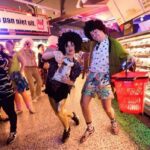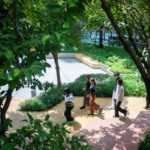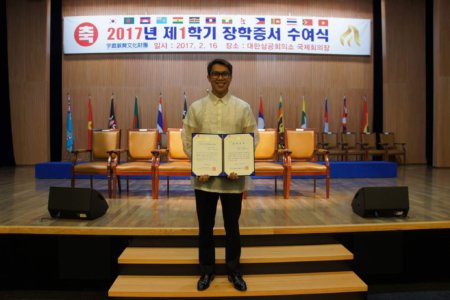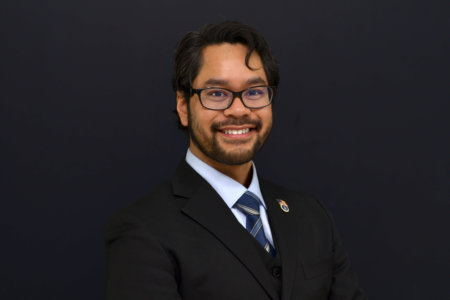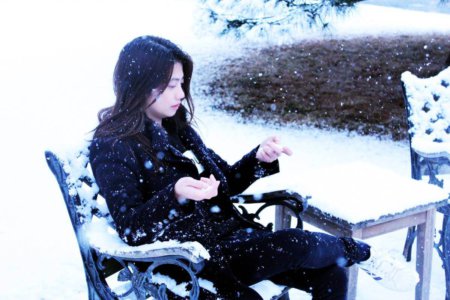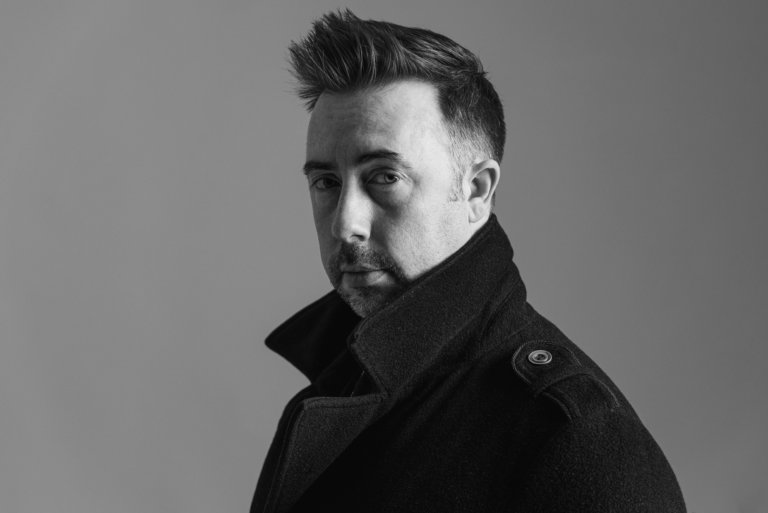
Not often do you see a white middle-aged English man writing about wanting legs like Lisa from BLACKPINK. Such statements usually come from Kpop stans, or likelier still, from fans of the band (a.k.a. Blinks).
The Kpop fandom, according to one survey of nearly half a million BTS fans, is overwhelmingly young (less than 30 years old) and based in countries like Indonesia, Mexico and the Philippines. David A. Tizzard is none of the above. He is not a Kpop stan but he is every bit as invested in Korean culture as they are.
As an academic, Tizzard looks at South Korea from every angle, including “Hallyu” (the Korean wave). That means analysing how the country is perceived from inside and outside, considering every nuance, meme, contradiction, and so forth. An “easy or simple” description will never do.
UK-born Tizzard was first drawn to the country for personal reasons, before developing an interest in it academically. “Having first come to South Korea as a way of seeing the world and exploring my life options, I became fascinated by what I experienced,” he shares.
“This was through the people, the culture, the history and the politics. Everything was so similar and yet at the very same time, so different. Thus, I wanted to understand it more.”
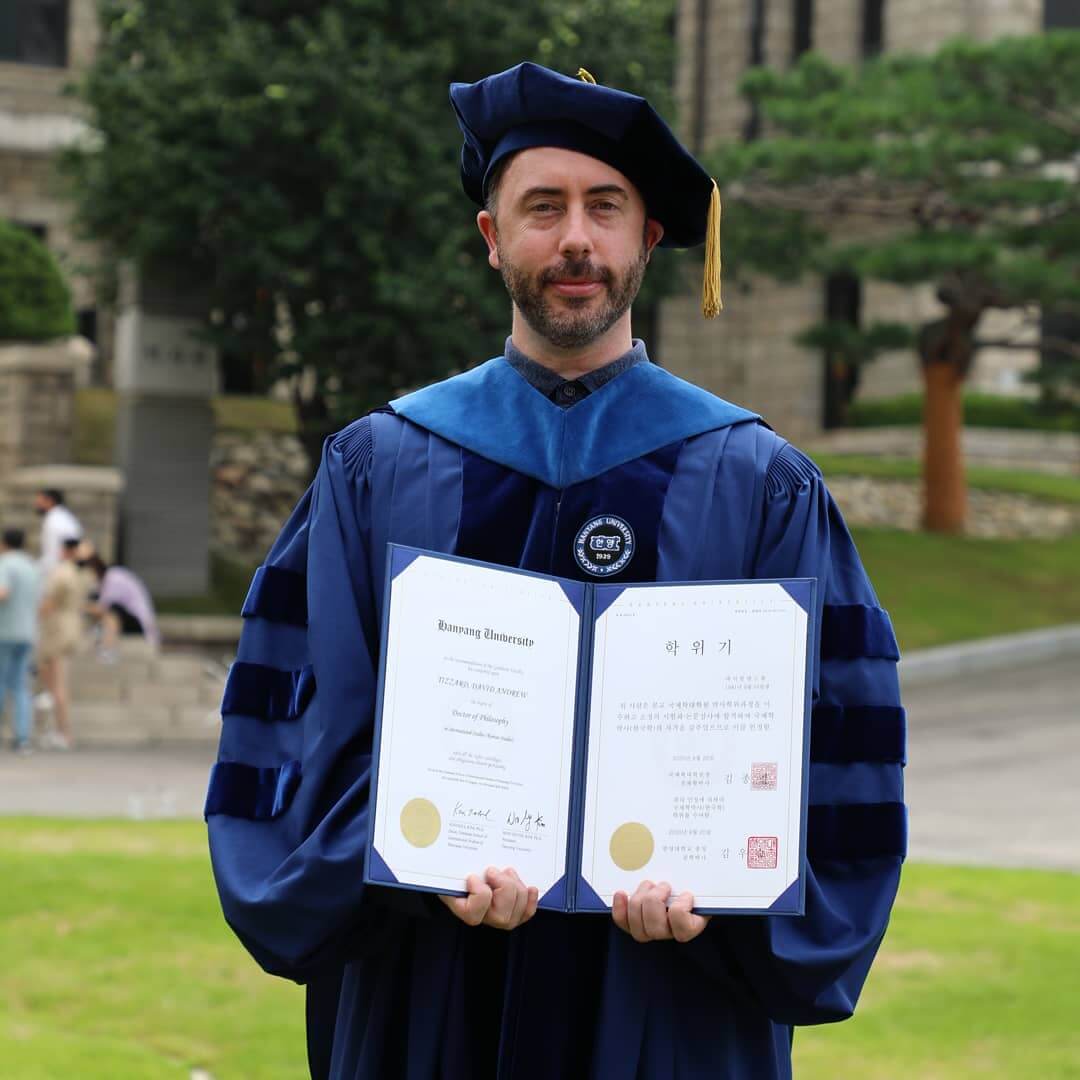
David Tizzard with his PhD in Korean Studies from Hanyang University. Source: David Tizzard
Since then, he’s earned an MA in Asian Studies/Civilisation from Sejong University, a PhD in Korean Studies from Hanyang University, a spot on a local radio programme every Sunday morning, a position as an assistant professor at Seoul Women’s University and a weekly column in the Korea Times.
We caught up with Tizzard via email to learn more about his love for South Korea, his opinion on Hallyu and his advice for aspiring PhD candidates:
What drew you to Asian Studies and pursuing a PhD in Korean Studies?
I was drawn to the country before my interest in the academic study of it. Having first come to South Korea as a way of seeing the world and exploring my life options, I became fascinated by what I experienced.
This was through the people, the culture, the history and the politics. Everything was so similar and yet at the very same time, so different. Thus, I wanted to understand it more.
I felt like I was gaining true ground-level knowledge of day-to-day life but I wanted to know more. One of the main reasons for my continued stay in Northeast Asia and in particular South Korea is that I feel the story of the country has not yet been written.
The particular trajectory and direction are not directly comparable to anything we’ve ever seen before. I want to observe and see it unfold. I want to be a part of it even in a passive manner.
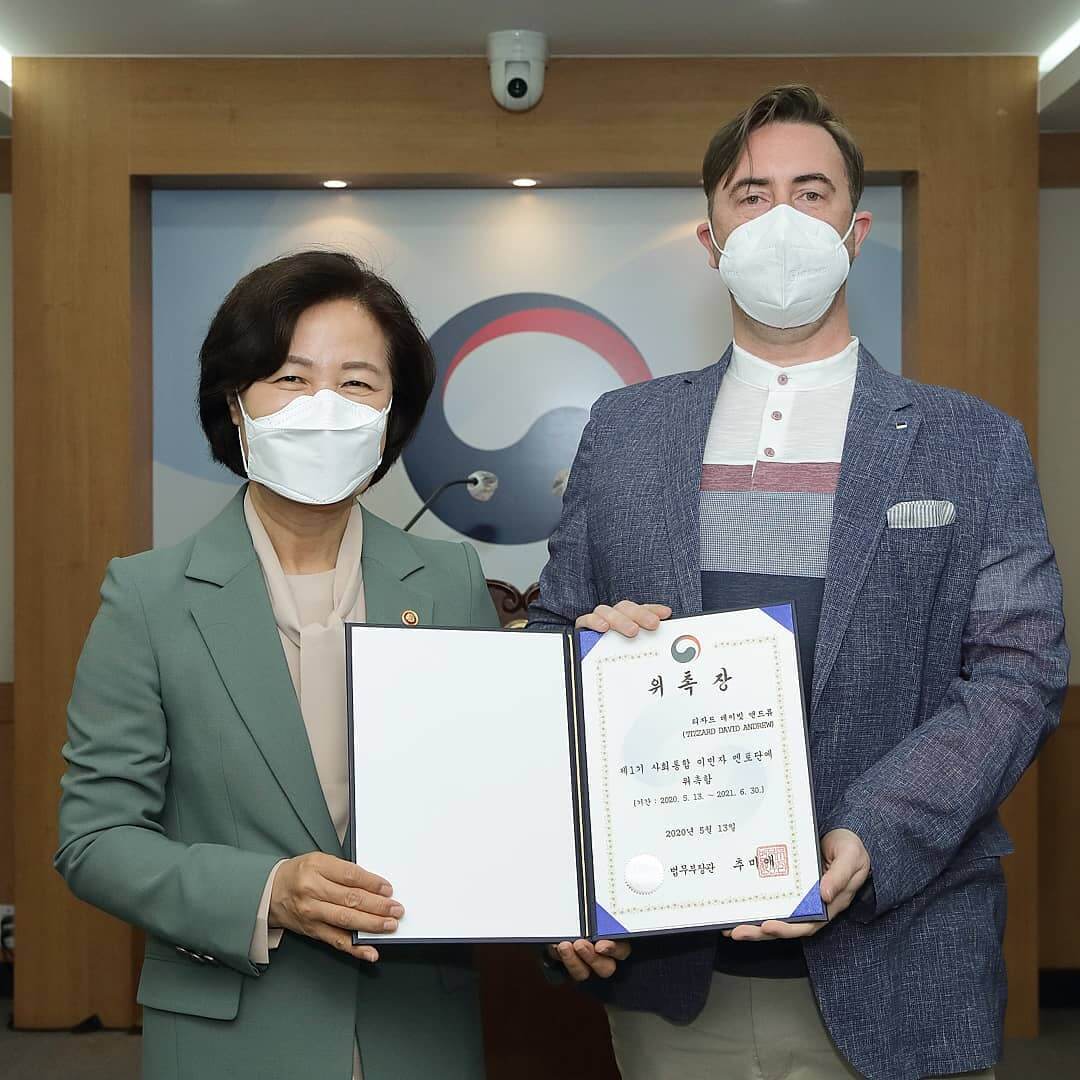
Here, Tizzard is pictured with former Justice Minister Choo Mi-ae. Source: David Tizzard
What can you tell us about Hallyu? Why do you think it’s only being acknowledged now by Kpop stans since its establishment in the 80s?
Korea has always looked to export things because of its geographical and natural constraints. So, while it started with textiles and clothes, this soon became ships and semiconductors.
At the same time, its culture has been sent overseas as a way of generating money and also increasing the country’s reputation in a region that can sometimes be rather hostile. Hallyu has been very big from the late 90s and early 2000s, particularly with its dramas.
There were fantasy Cinderella-like stories that were hugely popular in other parts of Asia. However, this was obviously not something the “western” world paid much attention to.
Now, however, the cultural products are spreading beyond Asia (although still a primary huge market) and reaching Europe, North America and more. This is because of the technological developments with smartphones, Instagram and Netflix.

The British football team in South Korea that Tizzard is part of. Source: David Tizzard
This changes the western attitudes towards embracing a greater range of identities. The market is now being driven by younger internet users rather than established company gatekeepers along with changes in the actual products themselves.
So, I think it’s been acknowledged for a long time but it’s only now that certain western award ceremonies are taking notice. But that shouldn’t detract from the huge attention Japan, Taiwan, Vietnam, China and Indonesia has been paying to Hallyu. Their interest is just as respectable as the American interest.
Tell us more about your career trajectory since graduating from Hanyang University.
I have been lucky enough to enjoy many great responsibilities in South Korea: teaching at various unis, writing a weekly column in the national press, and appearing weekly on the radio. These are all things I have sought for myself.
Of course, I’ve been lucky but at the same time proactive at searching for these things. I’m also currently working with the Ministry of Justice on a programme, working on my latest music album having performed at festivals all around Korea and raising two kids.
Why do you think it’s important for students to learn about Hallyu?
It’s very important but can they learn about it through Hallyu? That’s a different question. When BTS, for example, has a song like “Dynamite” which is written by British songwriters and performed entirely in English, how much Korean culture are we really getting in?
When the K-dramas provide fantasy depictions of life, again, how much of Korea can we really know through its cultural products? I think, more than anything, it can spark awareness.
It can provoke interest. Prompt further curiosity. But there often seems to be a gap between the cultural products and the actual day-to-day culture. This is often true in many different places, not said as a criticism of either the cultural products or the culture itself.
How do you use the knowledge and skills gained through your uni studies in your current lifestyle?
I am frequently asked by domestic and international media to comment on various issues. My study obviously helps with this and most importantly, keeps me humble.
It reminds me that for everything I do know, there is much I don’t. Moreover, it reinforces the idea that Korea is not a monolith. It can’t be described easily or simply. Rather, it’s full of contradictions, disagreements, confusion and so on.
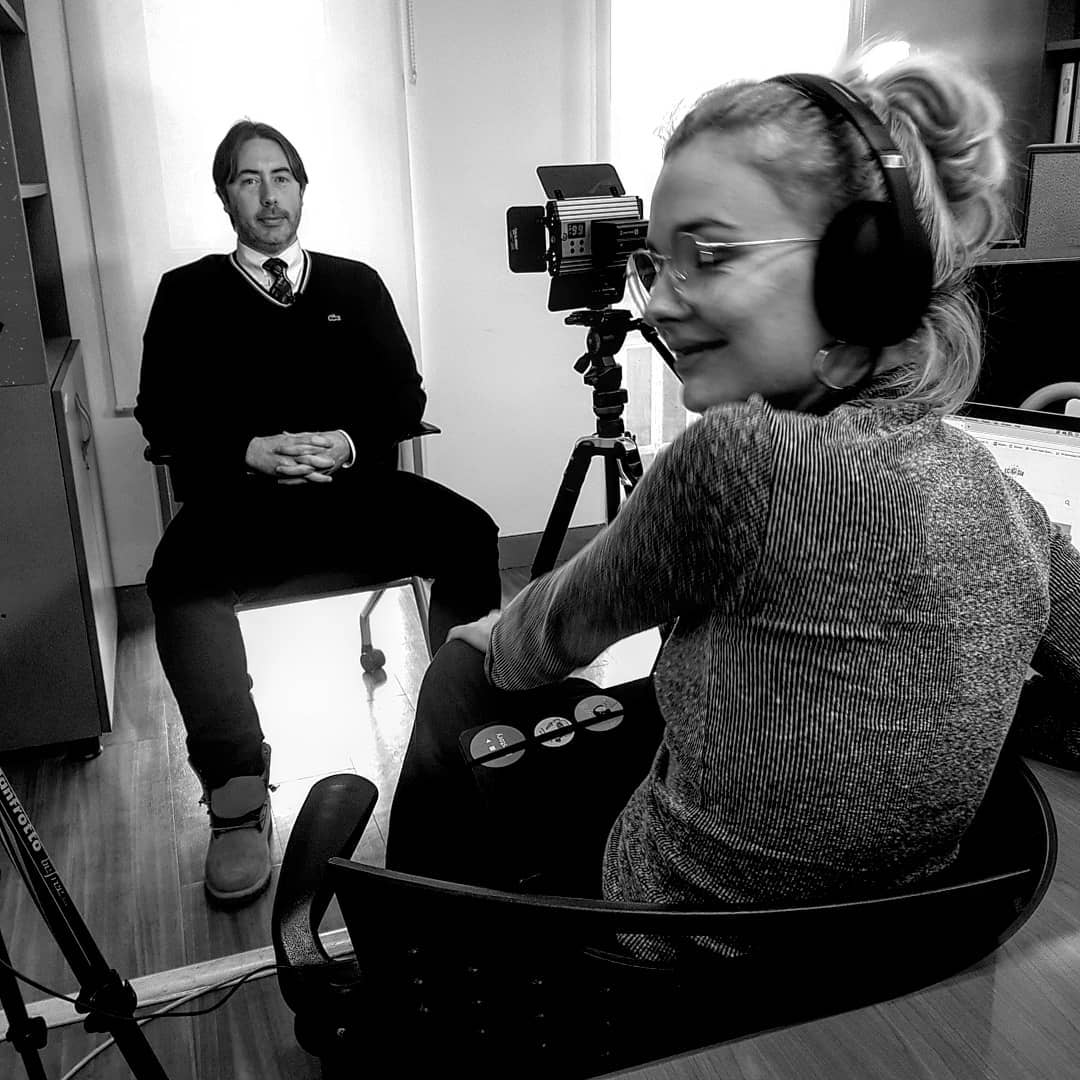
Tizzard is shown here recording a documentary on sex crime troubles in South Korea. Source: David Tizzard
This is something you get to know through studying, learning, and listening. It affects how I react to things. Personally, it also helps me in my relations with people, particularly senior members at the unis or other people I interact with in society.
Being able to demonstrate (not boast) a genuine knowledge and interest in the country helps relax people. It also shows them that you care for what goes on.
What are the practical learning elements in your PhD?
Learning is not just about knowledge — it’s about developing as a person. Making sure that you experience what it’s like to not be the smartest person in the room. To keep you in awe of the complexity of life.
They say: “The more you learn, the more you realise how much you don’t know” and I think this is so true. This is the greatest thing about education — it makes you stand in awe of life and have a greater deal of respect for various different perspectives, lives and ways of being that goes way beyond yourself.
What do you wish you had learned more during uni?
I wish that education weren’t so often politicised. Korea is obviously still divided and there is understandably a cold war mentality that still exists to some degree. I just wish that politics and such attitudes did not always stand in the way of truth and learning.
Of course, I understand why some people find certain theories or ideas dangerous. I don’t think that should prevent them from exposing students to them.

Tizzard appears on Arirang TV (a South Korean broadcasting network). Source: David Tizzard
As an educator myself, I try to show the students the various approaches to political and economic problems without focusing on my own beliefs. I wish there was more of that — courage in learning and bravery in reading everything.
What advice do you have for students planning to enrol in the same course as yourself?
Do it. Study and take the plunge. There are many stories about the death of higher education and how degrees and jobs are either not worth it anymore or far too competitive.
I find that really disheartening. Though this is something that’s normally said by people who already have PhDs. It feels like people are kicking the ladder away and preventing other people from making the climb that they have already made.
We should be doing the opposite, helping people up. We should be encouraging people to take our place and be the next generation. So my advice is always the same: do it!

Here, Tizzard poses with his children as part of a Ministry of Justice campaign to raise awareness. Source: David Tizzard
In 10 years, where would you like to be living and what you like to be doing?
I would like to be happy, healthy, and if possible, not living in a mask anymore. But who knows what will happen. Let’s just hope for the best.
Is there anything you miss from home?
Home is where the heart is. I often wonder whether or not Korea is now my home?






